Some thoughts on ?writing? today, including my other love, ?farming?, and another one, ?art.? A smorgasbord, really! First a note: There are few writers left in the world (but many keyboarders), I know, but, still, with a little generosity for old paper-based technologies, writers write on paper (or keyboard onto screens) and farmers put up fences in fields and plow fields in long lines like epic verses ? ah, you see? Writing. Here are one farmer?s animals in the Lagarflj?t, Iceland, sitting within the boundaries of his pages? ahem ? fields?
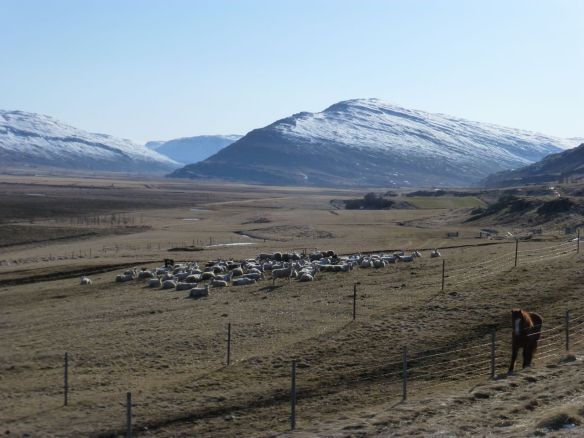
Horse and Sheep in the Spring Sun
The horse appears to be pushing at the boundaries of his rhyme scheme.
If you exist physically in a physical world, then farms like this are surely an art form. The pages are written on the land, rather than in books, but they are pages, nonetheless. In the age of ?Creative Writing Departments and, bless us, Literature, it?s not the way we who write ?words? like to think of our art, but it?s honest. After all, many of our languages (including English and Icelandic) were invented by sheepherders and fishermen. When we speak, or write (or keyboard), it is their voices that echo through the fields ? ahem, ?pages ? of our books (or screens) ? in other words, through our farms. Here is one of a farmer?s writing implements ?
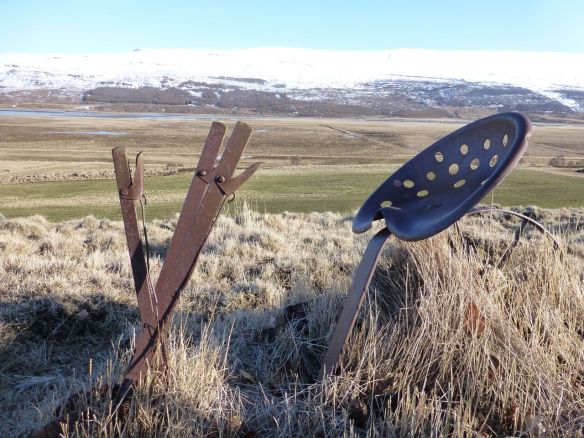
Horse-Drawn Hay Rake Put Out to Pasture?
? and ready to drive the earth up into the stars.?So much for the Industrial Revolution. Why, once even typewriters like this were created in foundries and then set loose like horses into the folds, I mean fields, of the world.
I make light of this important idea, I know, but it?s only because I find it so delightful. Think, for example, of what writing echoes in this farmer?s language called English: one wrights metal (and stage plays), one spells words (and magic), one writes poems, one performs rites, one tells stories, and in the end what one has to show for one?s craft (and art) is what one has wrought, wrote, read, invoked, spelled and played. In other words, it?s like this:
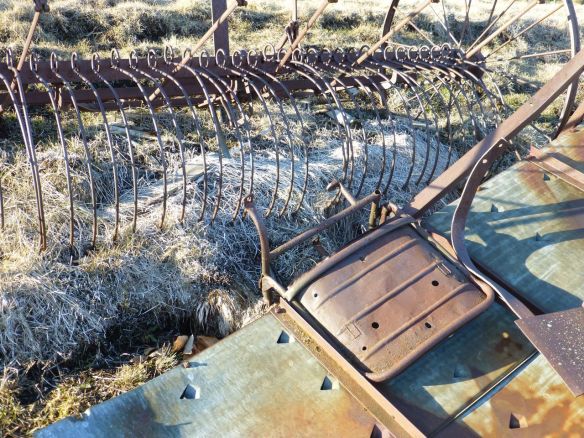
?
A Tangled Mess of Manure Spreader and Hay Rake
? somewhat forgotten over the hill (if you were wondering where that expression came from.)
There is, however, another form of art, indeed a language of its own, which has not wandered into such tight fields of electrified wire and driftwood fenceposts and old bits of barbed wire tufted with horse hair, that can help us wrights and spellers and invokers through our gates into the pastures of the high country, and that is the art of painting, and it?s industrial child, photography. In painting, one lays down colour and fills it in (as, indeed one does in music, as well), whereas in photography, one ?takes? a picture ? not in the sense of theft, but in the sense of ?taking a temperature? or of something ?taking place? ? in other words, one is engaged in a moment of presence, one is present, one is there, or, rather, here ?
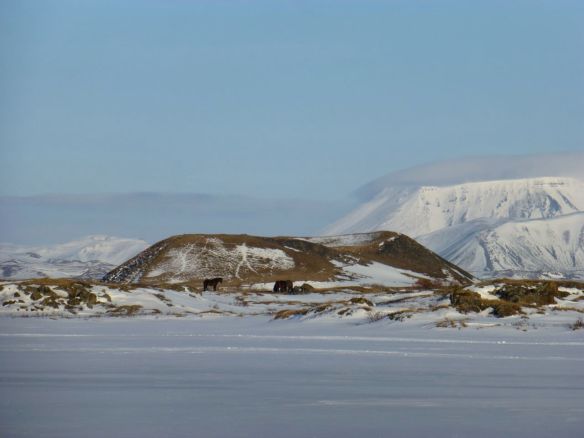 Three Icelandic Horses and Pseudo-Crater at Lake Myvatn, Iceland
Three Icelandic Horses and Pseudo-Crater at Lake Myvatn, Iceland
From these artists, we wrights and readers can take a blessing: instead of placing ourselves in the roles of givers and receivers of human intentions (stories, poems, plays and even novels, if your taste wanders in that direction), we can take a poem, lay down words, and be present, through our attention, in the world. This is what our ancestors meant when they created our language. This is what they are still saying when we ?use? it, or ?speak? it.
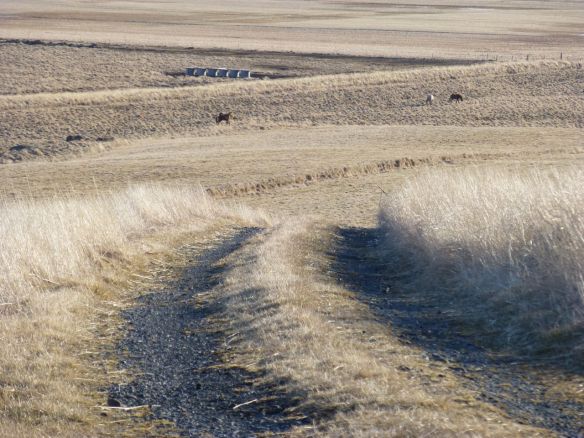 My Writing Desk at Skri?uklaustur, Iceland
My Writing Desk at Skri?uklaustur, Iceland
It?s about the light.
A long time ago I was taught to write poems by the orchard trees I lived among. After twenty seven books about people and their stories, the light has found me again and, once again, is wrighting me, and I am glad.
?
?
Like this:
Loading...
Source: http://okanaganokanogan.com/2013/03/26/writing-and-farming-are-one/
october baby sugarland 16 and pregnant ludwig mies van der rohe jamie lynn sigler mega millions jackpot black panther party
No comments:
Post a Comment
Note: Only a member of this blog may post a comment.